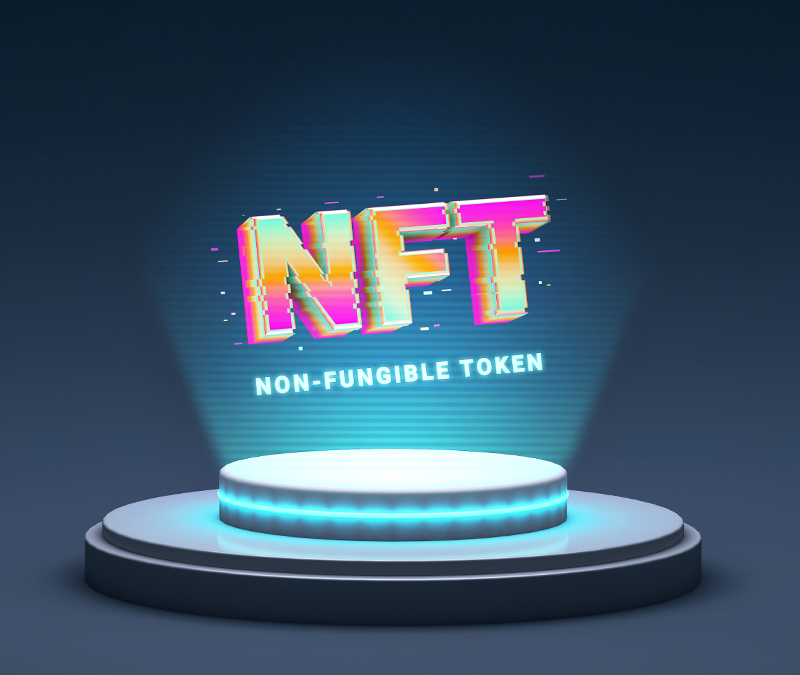NFTs relevance in cryptographic currencies – 4th industrial addition
Technology is constantly revolutionising our society and accelerating the pace in which the world is heading into the 4th industrial revolution. In the past few years mankind has seen a rise in digital assets, specifically cryptographic assets. One such digital currency are Non-fungible tokens, commonly known as NFTs.
NTFs are stored on a blockchain, which is a distributed public ledger used to record transactions. Each NFT is identified by a unique code that distinguishes it from other codes already in use. This data permits easy in verification of ownership and transferring tokens between owners. A defining difference between physical money and other forms of Cryptocurrency is that these more traditional forms are fungible, which means they are interchangeable or tradable for one another.
NFTs typically come in the form of art, music, in-game items, videos, and more. NFTs are bought and sold online. In order to obtains NFTs, one has to:
- Open a crypto exchange account
- Open a crypto wallet
- Transfer Ethereum into a crypto wallet
- Buy NFTs and use them in the NFTs marketplace to make purchases or sell items.
NFTs have been around since 2014 but are recently gaining notoriety because of the rise of digital culture becoming increasingly popular. This ideology has filtered into the art scene creating a demand for buying and selling digital artwork. NFTs originated in the area of digital art, but today you can purchase a wide range of NFTs, such as memes, domain names, trading cards, music, sports highlights, video games, fashion, and more.
According to Forbes, in 2021 alone, the market for NFTs was valued at an astounding $41 billion, which is roughly comparable to the total value of the world market for fine art. Some notable NFT purchases include the first tweet sent by Twitter’s CEO and founder, Jack Dorsey which was sold as an NFT in 2021 for approximately $ 2.9 million.
Famous digital artist Mike Winklemann, better known as “Beeple,” created the possibly most famous NFT of 2021, “EVERYDAYS: The First 5000 Days,” which was sold at Christie’s for a record-breaking $69.3 million. This momentous FT is arguably what solidified the long-term significance of non-fungible tokens.
Current debates around NFTs are related to its relevance and longevity. One can argue the sensibility of purchasing a $631 875 cat GIF that can just be seen with a simple google search. There is a direct and dependent relationship that exists between the practices of monetization and digitalization. A common practice of monetization is tax. NFTs are also subject to capital gains taxes -a tax that an investor must pay when they sell an item; the amount is determined on how much the asset increased in value while they possessed it.
Nevertheless, because they are considered collectibles, they might not be eligible for the favourable long-term capital gains rates that apply to equities and might possibly be subject to a higher collectors tax rate. The IRS has not yet determined what NFTs are classified for tax reasons. When considering adding NFTs to your portfolio, keep in mind that the cryptocurrencies you used to buy them might also be subject to taxation if their value has increased since you bought them. For this reason, you might wish to consult a tax expert.
Conclusion
NFTs and taxation in South Africa seems to be a grey area. The South African VAT legislation defines electronic services as any services supplied by means of an electronic agent, electronic communication or the internet, subject to certain specific exclusions. It should go without saying that a supply that relies on information technology, is automated, and has little human involvement would fit this criterion. As simple as this may appear to be, in effect, it becomes more complex, specifically when taking into account how blockchains function.
A customer must have a residential, postal, or business address in South Africa, and payment must come from a South African bank account for a nonresident supplier to be considered to be supplying electronic services in South Africa. A crucial consideration in this regard is the anonymity of blockchain transactions and thus the intricacies if not infeasibility, for the seller to ascertain the name and address of the purchaser of the NFTs in question. In essence, this makes it very challenging and nearly impossible to enforce VAT requirements on non-resident suppliers of NFTs, which now opens a loophole.


